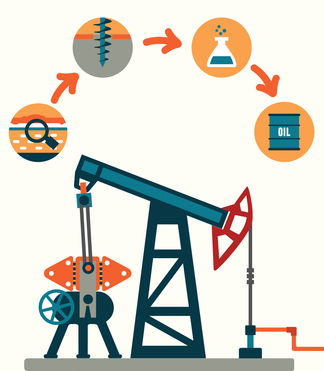2 - Basics of Petroleum Engineering
BSc in Health, Safety and Environment

About 2 - Basics of Petroleum Engineering
The Basics of Petroleum Engineering course aims to equip students with fundamental principles related to the exploration, drilling, production, and management of hydrocarbon resources. It covers essential topics relevant to the upstream sector of the oil and gas industry.
Program Learning outcome:
- Understand Drilling Systems: Explain the basic procedures and roles of fundamental systems used in petroleum drilling.
- Analyze Drilling Challenges: Develop awareness of the multiple aspects of drilling operations and the challenges encountered.
- Grasp Reservoir Concepts: Understand basic concepts of reservoir engineering, oil production methods, and recovery technologies.
- Quantify Rock and Fluid Properties: Define properties of reservoir rocks and fluids and calculate relevant parameters.
- Optimize Production Systems: Analyze key issues in designing and optimizing petroleum production systems.
- Navigate Decision-Making: Differentiate between risk and uncertainty, understand decision factors, and evaluate “hard” decisions.

TextBook Name:
Introduction to Petroleum Engineering by Hughes, Phil, and Ferrett, ed
Assessment Methods
Final Exam
60%
Midterm Exam
40%